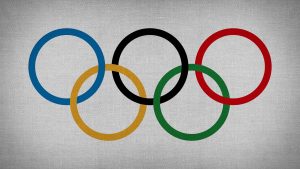The recent series of publications by the Australian Strategic Policy Institute (ASPI) on the cultural destruction perpetrated on Uyghur and Turkic people by the Chinese Communist Party (CCP) has rightfully left many shocked. By definition, it evidences cultural genocide.
In Australia it has fueled the debate through the corridors of Parliament about whether Australian athletes should participate in the Beijing 2022 Winter Olympics.
Some have hosed down such suggestions, including former diplomat Dave Sharma, now a federal member of Parliament, who said that the Olympics are an opportunity for journalists to cover “all sorts of stories” within China. However, this falsely assumes that Beijing would allow true freedom of movement and reporting, and secondly, care what is covered.
As of today, Beijing continues to deflect and deny all criticism in the face of clear evidence, often using international fora to stymie concerns. Participation at the Games would see Australian athletes risk becoming unwilling participants in the CCP’s propaganda machine.
Next month the Senate will debate Australia’s participation in what will likely be an awkward and tense exercise for the Morrison government and the Department of Foreign Affairs and Trade, who are seeking to manage the significantly deteriorated Canberra-Beijing relationship. The joint notice of motion from non-major politically aligned Senators Rex Patrick and Jacqui Lambie will call on the Australian government to work with the Australian Olympic Committee to ensure that the games are boycotted.
Minister for Sport Richard Colbeck sought to distance the government from the debate for now, telling Parliament that such a decision rests with the independent Australian Olympic Committee.
The 2022 Winter Olympics places China firmly under the spotlight on the international stage. The Games serve as a nation-building exercise that will further legitimize the CCP’s actions. When celebrating the success of the bid, state owned news outlet Xinhua stated that “the glory belongs to China.” However, as the focus of global attention China is also more vulnerable to criticism and forces outside of the control it often demands.
Here lies the risk for Beijing and the opportunity for activists. Beijing’s reflexive approach of economic and diplomatic coercion is limited under the spotlight.
A boycott is one of the strongest cards available for nations seeking to make a point, particularly when other forms of protest have fallen on deaf ears. The Olympics have been boycotted before, most famously the 1980 Moscow Olympic Games, shunned by the United States and a number of other countries. China too has boycotted the Olympics, including the 1956 Melbourne Olympics, as result of Taiwan being allowed to compete.
The debate has caught the attention of activists globally. Most recently, a global coalition of parliamentarians and a collection of over 150 human rights organizations have lobbied the International Olympic Committee (IOC) to strip the Games from Beijing.
The reality is that the IOC is unlikely to act. However, the potential for a wider international boycott of individual countries will likely be discussed as the Games near. The United Kingdom’s Foreign Secretary Dominic Raab left the door open when asked about a boycott. In the United States, a bipartisan resolution was tabled by 12 senators earlier this year asking the IOC to rebid the Games.
When rebuking the concerns over human rights abuses, Chinese Foreign Ministry spokesperson Wang Wenbin told journalists that the CCP’s actions in Xinjiang have been “approved” by nations at the U.N. Human Rights Council. However, the supporting nations included many with patchy human rights records themselves such as North Korea, Syria, Iran, and Sudan.
The CCP is dedicated to fundamentally eroding the cultural differences between people within its own borders, unifying everyone under philosophical principles and strict adherence to the Party. It believes just how it achieves this is a private matter unto itself and no one should have the right to intervene or challenge this – whether in Tibet, Hong Kong, Taiwan, or within mainland China. The CCP will utilize all opportunities in pushing its agenda, meaning participation at the Games would only serve to feed their narrative and further legitimize their actions.
Many will resist a boycott and question the politicization of sport. In doing so, they would find themselves agreeing with Chinese Foreign Ministry spokesperson Zhao Lijian who accuses those who seek to politicize sport as going against the spirit of the Olympic Charter. Ironically, the IOC agreed to add human rights protections into host city contracts to begin only at the 2024 Paris Summer Olympics.
Even so, a stated goal of Olympism, as per the Olympic Charter, is the promotion of a peaceful society concerned with the preservation of human dignity. So far global criticism of Beijing has done little to stop the ongoing cultural genocide of its ethnic communities. As the Games near, it will be increasingly unlikely that the 2022 Winter Olympics can be pulled from Beijing. The leaves the onus on Australian athletes, the Australian Olympic Committee, and many from around the world, to make the call.
Philip Citowicki is an Australian foreign policy commentator and was an advisor to former Australian Foreign Minister Julie Bishop.
































